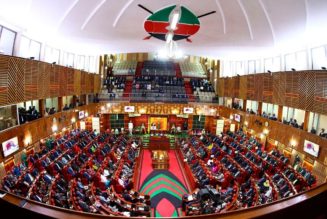
Payrolls in Kenya’s private sector showed signs of growing in April after months of stagnation, signalling increased hiring and a positive outlook on future demand for goods and services amid rising concerns over disruptive floods.
The findings of Stanbic Bank Kenya’s Purchasing Managers Index (PMI) survey showed expenditure on workers’ wages and benefits rose at the fastest pace in eight months.
Feedback from about 400 corporate managers suggested most key sectors such as agriculture, manufacturing, wholesale & retail, services and mining witnessed a modest increase in compensation for employees.
Construction was the only sector which reported a drop in staff costs, according to the monthly survey.
“Wage pressures were still prevalent as firms continued to hire staff and increase inventories because they anticipate improved demand,” Christopher Legilisho, an economist with South African-based Standard Bank, the parent firm of Stanbic Bank, wrote in the PMI report on Monday.
This came on the back of companies increasing their workforce for the fourth month running in a bid to clear outstanding workloads and boost sales. The rate of job creation was highest in February when the rate of hiring hit a 13-month high, slowed in March before picking in April.
Employment opportunities rose highest in construction sectors in April, according to the PMI, indicating contractors were hiring at lower wages given that the sector’s overall staff expenses dropped.
Overall, Kenya’s private sector activity steadied in April compared with a month earlier on easing inflationary pressures amidst a stable currency.
The Stanbic Kenya PMI — a measure for private sector activity such as output, new orders and employment— rose marginally to 50.1 compared with 49.7 percent in March.
This signalled largely unchanged month-on-month business deals because PMI readings above 50 signal growth, while levels below that mark point to a contraction.
“Output and new orders were neutral during the month as firms reported a balanced inflow of new business despite concerns from some businesses about the heavy rainfall across the country,” Mr Legilisho said.
“There was a notable increase in jobs created, quantities purchased, and inventories held by firms during the month, reflecting increases in existing workloads and prospects of new business.”
Inflation, a measure of the increase in the cost of goods and services over the previous year, grew at the softest pace in 42 months in April at 5.0 percent on falling food and energy costs, according to the Kenya National Bureau of Statistics.
The shilling, on the other hand, was largely stable, exchanging at 133.28 units against the globally bullish US dollar at the close of the month compared with 133.80 units at the start — a marginal depreciation of 1.12 percent.
“Input prices, purchase prices, and output prices declined in April, further signaling an easing in price pressures across most sectors surveyed apart from construction and agriculture. This aligns with our view that inflationary pressures have abated,” the Stanbic economist said.
The easing inflationary pressure amidst the strengthening shilling in a net import economy was expected to free up some cash for expenditure, boosting business activity.
However, the onset of heavy rainfall has disrupted activity in key sectors, including education and trade.
The resultant floods, whose destruction observers say was last witnessed in 1998/99 El Niño rainfall, are expected to slow down private sector activity. “We share these concerns and worry that growth will slow in Q2:24 (second quarter of 2024) because of the widespread devastation and disruptions caused by the heavy rain,” Mr Legilisho said.









